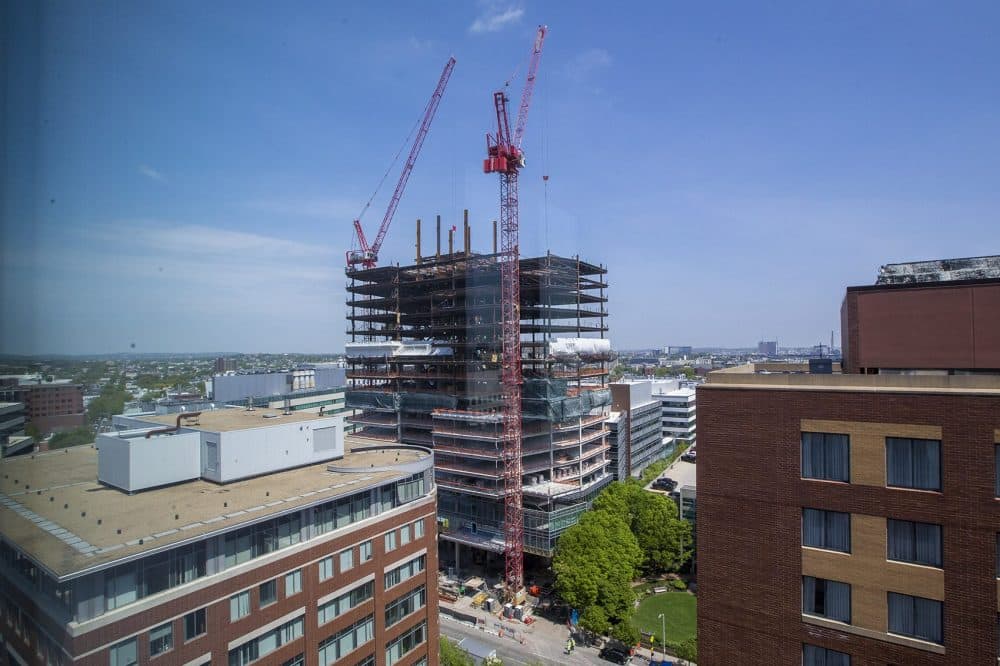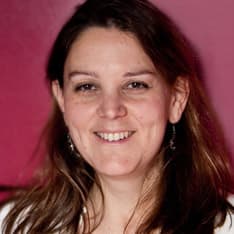Advertisement
BioBoom
Next Chapter For Biotech? Many Say 'Convergence' With Data Science

So far, the digital revolution has mostly been a disappointment in health care. Doctors stare at their screens instead of us. Specialists and emergency rooms still don’t have all our records.
But artificial intelligence, big data analytics and deep learning are converging on health care in a big way, information technology experts insist. The changes have already begun. And if and when they really take off, such convergence of biology and technology should bring about a complete transformation of medical care.
“My personal perspective would be in three to five years, the huge majority of patients will be touched one way or [an]other with some AI-related system, whether they know it or not,” says Chris Coburn, chief innovation officer at Partners HealthCare, who recently led a three-day conference on the topic of artificial intelligence, or AI. “The scope of the potential benefit is at times not easily even imagined.”
Coburn and others cite numerous examples where artificial intelligence is already improving health care:
-- Digital visual analysis is beginning to replace pathologists at identifying dangerous tumors.
-- Devices are increasingly able to monitor patients at home to catch problems before they become serious.
-- Pharmaceutical companies like Amgen and Novartis are using deep learning and artificial intelligence to shorten their drug development process and improve their odds of successfully bringing a drug to market.
-- Cellphones and watch-like mobile devices are increasingly being used to monitor healthy people for changes that might indicate impending problems.
-- And in hospitals, algorithms can help indicate which patients need immediate attention and which should be left alone to rest.
"Our patient monitoring and guardian algorithms can actually predictively say how a patient is doing," says Frans van Houten, head of Royal Philips, the Dutch conglomerate now focused almost entirely on health care technologies.
Advertisement
Houten, whose company is in the process of consolidating its U.S. research operations in Cambridge, says digital algorithms can predict which patients are vulnerable to life-threatening infections and which to heart attacks.
“And that allows the health system to proactively direct staff to the patients that need [care], versus the patients that don’t,” he says. “So our technology can play a big role for precision care and raising productivity.”
Similarly, Colin Hill runs a Cambridge company, GNS Healthcare, which analyzes vast amounts of patient data to derive information that can improve care.
“We’re on a path to turning the lights on and revealing what works for whom," he says. "And by getting at the underlying mechanisms of these diseases, we can now stop the guesswork. That's what's really exciting for me.”
His company recently used genetic data from a large number of patients with the blood cancer multiple myeloma to identify patterns in those who were helped by a costly, potentially dangerous bone marrow transplant. If the findings are validated, patients whose genetics suggest they wouldn’t benefit could be spared the time, energy, expense and dashed hopes of a fruitless procedure.
Thanks to improvements in artificial intelligence, Hill says, “we’re now able to learn that kind of causality -- those kinds of cause-effect relationships -- straight from real-world data.”
"As a society, we are coming to grips with the fact that we have a health care system that costs far too much and delivers far too little..."
Colin Hill, GNS Healthcare
Hopefully, this will also save money, which is driving the current interest, Hill says.
“What's changed is the convergence of both the data and the technology capabilities,” he says. “And I think the environment's also changed. As a society, we are coming to grips with the fact that we have a health care system that costs far too much and delivers far too little and it is ultimately not sustainable the way it is.”
Nobel Laureate and MIT Institute professor Phil Sharp has an even broader vision of this convergence: It’s not just computer science and biology that are converging, but engineering, physics, material science and agriculture too, he says.
“Life science is part of all of those processes and bringing physicists and engineering and information technology together to integrate life science with the translation to solving those problems is what convergence is about,” Sharp says. “It'll be decades of exciting science and exciting technology.”
'It Doesn't Always Go The Way We Hope'
Despite its potential, some people say that artificial intelligence is the future of health care — and always will be. Skepticism remains high because of problems with the electronic health record, which has taken years longer than expected to become functional and constructive.
“We hope that things are going to go well. But specifically in health care it doesn't always go the way we hope,” says Andrew Beam, an instructor and junior faculty member in the department of Biomedical Informatics at Harvard Medical School.
GNS Healthcare's Hill says he finds it annoying when tech people assume it should be easy to bring change to health care.
"When folks come from the tech world thinking that they're going to come and build the iPhone of human disease and health care, one of the reasons why they stumble with it is because the complexity of these systems is just beyond anything we've dealt with,” Hill says. "It’s a fundamentally different problem.”
There is no room for error when someone’s health or life is on the line.
And privacy is an even bigger issue in medicine than on social media. No one wants their medical records on display on the internet.
Beam says that although there is more oversight in medicine, privacy breaches will happen.
"I think it's going to continue to be a problem,” he says. "The unfortunate fact in cybersecurity is that the bad guys are always just ahead of the good guys and there's sort of an ongoing arms race."
Despite the concerns about digital health, there’s clearly a growing interest in the combination of computer technology and medical care.
Abbie Celniker, a partner Third Rock Ventures, says so far, her venture capital firm hasn’t invested directly in artificial intelligence or machine learning companies. But that day may not be far off.
“We are starting to really do our homework and think about the most optimal places to bring together therapeutic development and digital health,” she says.
Others are investing, too. Last month, pharma giant Roche spent $1.9 billion to buy Flatiron Health, a New York startup that tries to advance cancer care by analyzing huge datasets of patient records.
Celniker says that most of the companies Third Rock has helped start already use digital technologies to analyze datasets, crunch numbers or improve efficiency.
“But applying it in a bigger way, bringing together more diverse datasets, and having things learned from those very diverse datasets, that's something that we're just trying now to figure out where's the best place to investigate," she says.
Greater Boston has all the necessary ingredients to lead in the area of digital health, a number of local experts say, continuing to keep the so-called BioBoom alive for years to come.
“Digital health is what's next. Precision medicine, personalized medicine -- that is what's next,” says Bob Coughlin, president and CEO of the nonprofit Massachusetts Biotechnology Council. “Now let's ask, where is most of that research in those areas — in digital health and precision medicine? What in gene therapy and immunotherapy and gene modification and exon skipping and CAR-T therapy, CRISPR technology -- where’s most of that happening? Well, folks, you can walk to it right here.”
Although digital giants like Microsoft and Google are headquartered in Silicon Valley, they now have outposts in Cambridge. They’re the ones driving up the rent in Kendall Square, Coughlin says.
And there’s a broad range of expertise here, which will be essential for this convergence, Harvard Med's Beam says.
"You can't just be a computer scientist working in isolation on artificial intelligence if you want to change biology and medicine,” he says. You have to partner with doctors, engineers and hospital staff. “And no matter what area of biology or medicine would like you to use AI to improve, there is a world expert in that area here Boston."
This segment aired on June 8, 2018.
